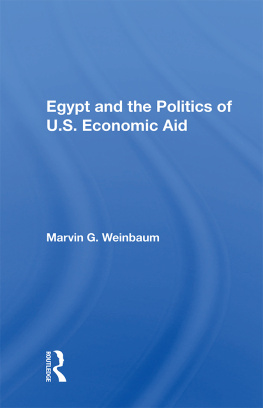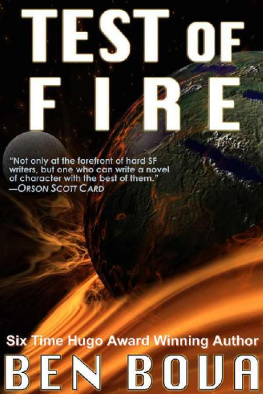Stanley Weinbaum - Dawn of Flame
Here you can read online Stanley Weinbaum - Dawn of Flame full text of the book (entire story) in english for free. Download pdf and epub, get meaning, cover and reviews about this ebook. genre: Science fiction. Description of the work, (preface) as well as reviews are available. Best literature library LitArk.com created for fans of good reading and offers a wide selection of genres:
Romance novel
Science fiction
Adventure
Detective
Science
History
Home and family
Prose
Art
Politics
Computer
Non-fiction
Religion
Business
Children
Humor
Choose a favorite category and find really read worthwhile books. Enjoy immersion in the world of imagination, feel the emotions of the characters or learn something new for yourself, make an fascinating discovery.

- Book:Dawn of Flame
- Author:
- Genre:
- Rating:5 / 5
- Favourites:Add to favourites
- Your mark:
- 100
- 1
- 2
- 3
- 4
- 5
Dawn of Flame: summary, description and annotation
We offer to read an annotation, description, summary or preface (depends on what the author of the book "Dawn of Flame" wrote himself). If you haven't found the necessary information about the book — write in the comments, we will try to find it.
Dawn of Flame — read online for free the complete book (whole text) full work
Below is the text of the book, divided by pages. System saving the place of the last page read, allows you to conveniently read the book "Dawn of Flame" online for free, without having to search again every time where you left off. Put a bookmark, and you can go to the page where you finished reading at any time.
Font size:
Interval:
Bookmark:
Dawn of Flame
by Stanley Grauman Weinbaum
One. THE WORLD
Hull Tarvish looked backward but once, and that only as he reached the elbow of the road. The sprawling little stone cottage that had been home was visible as he had seen it a thousand times, framed under the cedars. His mother still watched him, and two of his younger brothers stood staring down the Mountainside at him. He raised his hand in farewell, then dropped it as he realized that none of them saw him now; his mother had turned indifferently to the door, and the two youngsters had spied a rabbit. He faced about and strode away, down the slope out of Ozarky.
He passed the place where the great steel road of the Ancients had been, now only two rusty streaks and a row of decayed logs. Beside it was the mossy heap of stones that had been an ancient structure in the days before the Dark Centuries, when Ozarky had been a part of the old state of M'souri. The mountain people still sought out the place for squared stones to use in building, but the tough metal of the steel road itself was too stubborn for their use, and the rails had rusted quietly these three hundred years.
That much Hull Tarvish knew, for they were things still spoken of at night around the fireplace. They had been mighty sorcerers, those Ancients; their steel roads went everywhere, and everywhere were the ruins of their towns, built, it was said, by a magic that lifted weights. Down in the valley, he knew, men were still seeking that magic; once a rider had stayed by night at the Tarvish home, a little man who said that in the far south the secret had been found, but nobody ever heard any more of it.
So Hull whistled to himself, shifted the rag bag on his shoulder, set his bow more comfortably on his mighty back, and trudged on. That was why he himself was seeking the valley; he wanted to see what the world was like. He had been always a restless sort, not at all like the other six Tarvish sons, nor like the three Tarvish daughters. They were true mountainies, the sons great hunters, and the daughters stolid and industrious. Not Hull, however; he was neither lazy like his brothers nor stolid like his sisters, but restless, curious, dreamy. So he whistled his way into the world, and was happy.
At evening he stopped at the Hobel cottage on the edge of the mountains. Away before him stretched the plain, and in the darkening distance was visible the church spire of Norse. That was a village; Hull had never seen a village, or no more of it than this same distant steeple, shaped like a straight white pine. But he had heard all about Norse, because the mountainies occasionally went down there to buy powder and ball for their rifles, those of them who had rifles.
Hull had only a bow. He didn't see the use of guns; powder and ball cost money, but an arrow did the same work for nothing, and that without scaring all the game a mile away.
Morning he bade goodbye to the Hobels, who thought him, as they always had, a little crazy, and set off. His powerful, brown bare legs flashed under his ragged trousers, his bare feet made a pleasant soosh in the dust of the road, the June sun beat warm on his right cheek. He was happy; there never was a pleasanter world than this, so he grinned and whistled, and spat carefully into the dust, remembering that it was bad luck to spit toward the sun. He was bound for adventure.
Adventure came. Hull had come down to the plain now, where the trees were taller than the scrub of the hill country, and where the occasional farms were broader, well tilled, more prosperous. The trail had become a wagon road, and here it cut and angled between two lines of forest. And unexpectedly a man no, two men rose from a log at the roadside and approached Hull. He watched them; one was tall and light-haired as himself, but without his mighty frame, and the other was a head shorter, and dark. Valley people, surely, for the dark one had a stubby pistol at his belt, wooden-stocked like those of the Ancients, and the tall man's bow was of glittering spring steel.
"Ho, mountainy!" said the dark one. "Where going?"
"Norse," answered Hull shortly,
"What's in the bag?"
"My tongue," snapped the youth.
"Easy, there," grunted the light man. "No offense, mountainy. We're just curious. That's a good knife you got. I'll trade it."
"For what?"
"For lead in your craw," growled the dark one. Suddenly the blunt pistol was in his hand. "Pass it over, and the bag too."
Hull scowled from one to the other. At last he shrugged, and moved as if to lift his bag from his shoulders. And then, swift as the thrust of a striking diamondback, his left foot shot forward, catching the dark one squarely in the pit of his stomach, with the might of Hull's muscles and weight behind it.
The man had breath for a low grunt; he doubled and fell, while his weapon spun a dozen feet away into the dust. The light one sprang for it, but Hull caught him with a great arm about his throat, wrenched twice, and the brief fight was over. He swung placidly on toward Norse with a blunt revolver primed and capped at his hip, a glistening spring-steel bow on his shoulder, and twenty-two bright tubular steel arrows in his quiver.
He topped a little rise and the town lay before him. He stared. A hundred houses at least. Must be five hundred people in the town, more people than he'd ever seen in his life all together. He strode eagerly on, goggling at the church that towered high as a tall tree, at the windows of bits of glass salvaged from ancient ruins and carefully pieced together, at the tavern with its swinging emblem of an unbelievably fat man holding a mammoth mug. He stared at the houses, some of them with shops before them, and at the people, most of them shod in leather.
He himself attracted little attention. Norse was used to the mountainies, and only a girl or two turned appraising eyes toward his mighty figure. That made him uncomfortable, however; the girls of the mountains giggled and blushed, but never at that age did they stare at a man. So he gazed defiantly back, letting his eyes wander from their bonnets to the billowing skirts above their leather strap-sandals, and they laughed and passed on.
Hull didn't care for Norse, he decided. As the sun set, the houses loomed too close, as if they'd stifle him, so he set out into the countryside to sleep. The remains of an ancient town bordered the village, with its spectral walls crumbling against the west. There were ghosts there, of course, so he walked farther, found a wooded spot, and lay down, putting his bow and the steel arrows into his bag against the rusting effect of night-dew. Then he tied the bag about his bare feet and legs, sprawled comfortably, and slept with his hand on the pistol grip. Of course there were no animals to fear in these woods save wolves, and they never attacked humans during the warm parts of the year, but there were men, and they bound themselves by no such seasonal laws.
He awoke dewy wet. The sun shot golden lances through the trees, and he was ravenously hungry. He ate the last of his mother's brown bread from his bag, now crumbled by his feet, and then strode out to the road. There was a wagon creaking there, plodding northward; the bearded, kindly man in it was glad enough to have him ride for company.
"Mountainy?" he asked.
"Yes."
"Bound where?"
"The world," said Hull.
"Well," observed the other, "it's a big place, and all I've seen of it much like this. All except Selui. That's a city. Yes, that's a city. Been there?"
"No."
"It's got," said the farmer impressively, "twenty thousand people in it. Maybe more. And they got ruins there the biggest you ever saw. Bridges. Buildings. Four five times as high as the Norse church, and at that they're fallen down. The Devil knows how high they used to be in the old days."
Font size:
Interval:
Bookmark:
Similar books «Dawn of Flame»
Look at similar books to Dawn of Flame. We have selected literature similar in name and meaning in the hope of providing readers with more options to find new, interesting, not yet read works.
Discussion, reviews of the book Dawn of Flame and just readers' own opinions. Leave your comments, write what you think about the work, its meaning or the main characters. Specify what exactly you liked and what you didn't like, and why you think so.


